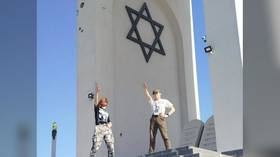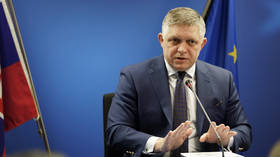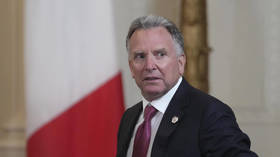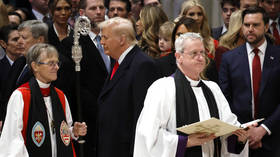‘Speed over safety’? SpaceX IGNORED FAA warnings prior to Starship prototype launch that ended with explosion, media says
Elon Musk’s company SpaceX reportedly turned a blind eye to warnings over safety risks from federal regulators during a launch, documents obtained by The Verge reveal. The test flight in question ended with a fiery crash.
The Federal Aviation Administration (FAA) issued at least two warnings to SpaceX during the company’s testing of its reusable Starship system in Texas last year, US news website The Verge reported, citing “exclusively obtained” documents.
The documents, which apparently include confidential letters between the FAA and SpaceX chiefs, among other things, suggest that the company “prioritized speed over safety,” according to The Verge. Its “actions show a concerning lack of operational control and process discipline that is inconsistent with a strong safety culture,” a letter from the FAA space division head, Wayne Monteith, to SpaceX President Gwynne Shotwell reportedly states.
Also on rt.com SpaceX Starship prototype EXPLODES during attempted landing (VIDEO)In December 2020, the Starship prototype serial number 8 (SN8) took off from private grounds belonging to SpaceX in Boca Chica, Texas. While the high-altitude suborbital test flight launched successfully, the vehicle disassembled and crashed while attempting to land. Elon Musk then tweeted that his company “got all the data we needed” from the test, adding, “Mars, here we come!”
However, according to the latest report, events apparently violating the company’s launch license, and potentially endangering the public, occurred minutes before takeoff, as the SN8 wasn’t cleared for launch by the FAA due to the weather conditions.
On the launch day, FAA officials questioned SpaceX’s weather and launch modeling data, and said the SN8 wasn’t safe to launch, according to a report. The federal regulators, upon studying their own models, said that if an explosion occurred, nearby homes could be endangered due to wind speed potentially strengthening the shockwave. The countdown was paused, but an unnamed SpaceX director of launch operations restarted the launch shortly afterwards, despite FAA safety inspectors saying the risks remained.
A violation warning was reportedly announced by the FAA on an open phone line with the launch control room, but ignored by SpaceX staff.
They “assumed that the [federal] inspector did not have the latest information,” according to a SpaceX report, which was also harshly criticized by the FAA chief. The launch was “based on ‘impressions’ and ‘assumptions,’ rather than procedural checks and positive affirmations,” Monteith reportedly wrote to Shotwell.
Musk’s role, if any, in the decision-making process is unclear, The Verge said, adding that the company has not responded to a request for comments. An investigation into the incident was reportedly carried out shortly after the crash, but no sanctions followed.
Less than two months after the SN8 test, SpaceX’s next Starship prototype, the SN9, also crashed and exploded in Texas on February 2. In early March, the SN10 soared to around 10km, but blew up into pieces upon touching down minutes later. The SN11 crashed in thick fog the same month. SpaceX said it had incorporated the lessons from the failures, and eventually in May, successfully launched and safely landed its prototype of the reusable craft designed for carrying crews and cargo into space.
Like this story? Share it with a friend!















